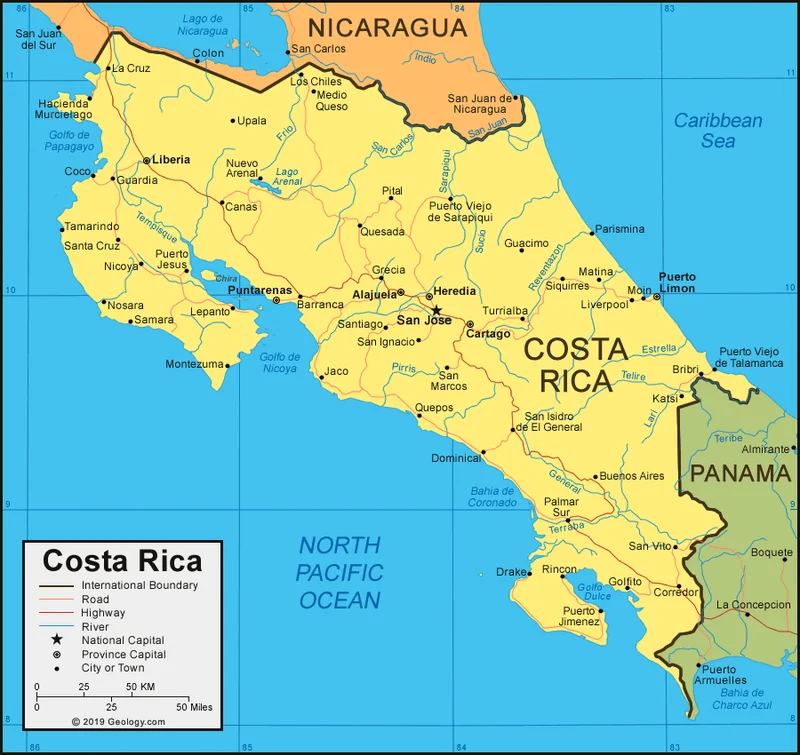There’s a beautiful, almost mathematical purity to a system designed for a single purpose. In our world, we build them all the time—algorithms to sort data, networks to move information, engines to generate power. But the most fascinating systems, the ones that truly captivate us, are the ones that involve the messiest, most unpredictable variable of all: human beings.
Right now, in the world of international soccer, one of those systems is running a real-time, high-stakes experiment, and I honestly can't look away. With the big three—the US, Mexico, and Canada—already qualified for the 2026 World Cup as hosts, the Concacaf qualifiers have become a wide-open laboratory. It's a test of who can step into the power vacuum, a petri dish for ambition and collapse. And nowhere is the data more fascinatingly chaotic than in Group C.
The Predictable Machine Is Sputtering
If you were building a predictive model for this group just a few months ago, your algorithm would have spit out a simple, clean result: Costa Rica. They are the legacy system, the blue-chip stock with a mountain of historical data to back it up. We’re talking about a team that hasn’t lost a home World Cup qualifier to a Central American opponent in over two decades. Their all-time record against their next opponent, Nicaragua, is a staggering 17 wins, 2 draws, and just a single loss.
That’s what we call a statistically dominant variable—in simpler terms, they were supposed to be the sure thing.
But the current data? It’s telling a completely different story. Three matches played, three draws. Zero goals scored, zero goals conceded. It’s a perfect, flat-lined signal of stagnation. The machine, for all its historical power, is sputtering. It’s like watching a tech giant that owned the market for years suddenly stop innovating. The brand is still there, the history is undeniable, but the performance metrics are screaming that something is fundamentally wrong. When I first saw their results lined up like that, I honestly just sat back in my chair, speechless. It's the kind of data anomaly that reminds me why I got into this field in the first place.
And into this void steps the disruptor. Haiti, a team with far less historical weight, is sitting at the top of the group. They are the agile startup, running on momentum and belief, rewriting the code of the group in real time. They’ve already beaten Nicaragua, the same team Costa Rica could only manage a 1-1 draw against just last month.

So what happens when the most reliable data point in a system suddenly becomes the most unpredictable? Can a legacy of dominance overcome a crisis of confidence? Or are we watching a paradigm shift, live on the world stage?
A System Under Pressure
This all brings us to Monday night in San José. Costa Rica hosts Nicaragua in crucial match. Costa Rica’s Estadio Nacional won’t just be a soccer stadium; it will be a crucible. It’s the point in the experiment where you crank up the pressure to see if the system breaks or realigns. Imagine the air, thick with humidity and expectation. The weight of that 21-year unbeaten streak isn’t a comfort anymore; it's a burden. Every missed pass, every defensive scramble will be amplified by the collective memory of what this team should be.
This is where historical data can become a psychological trap. Costa Rica isn’t just playing against eleven men from Nicaragua; they’re playing against the ghost of their former selves. They are a team haunted by their own statistical probability.
And Nicaragua? They are no longer just a data point in Costa Rica’s long history of wins. They are an active agent of chaos. That 1-1 draw they secured in Managua last month was a proof of concept—it showed that the legacy system was vulnerable. Now they walk into the fortress not just hoping for a miracle, but with data-driven evidence that a result is possible. This match isn't just about three points, it's about validating a new reality or snapping back to the old one, and the sheer number of cascading possibilities that hinge on this single 90-minute outcome is just staggering—it could redefine the trajectory of two nations for the next four years.
Of course, we have to remember these aren't just variables in an equation. They are athletes under immense pressure, carrying the hopes of their countries. There’s a human cost to this kind of systemic stress that no algorithm can fully capture. But it’s that very human element that makes this experiment so profoundly compelling. Can a team whose identity is built on being the regional powerhouse rediscover itself before it’s too late?
The Data Is Alive
In the end, this is why we are so drawn to these systems. We can build all the predictive models we want, we can analyze decades of historical data, but we can never fully account for the beautiful, unpredictable spark of human endeavor. The data isn’t static; it’s alive. It breathes, it hopes, it fears, and it fights back against expectations.
What’s happening in Group C isn’t a glitch in the matrix; it’s the system working as intended. It’s a showcase of potential, a testament to the fact that the past does not have to be a blueprint for the future. We don’t watch to see our predictions confirmed. We watch for the anomalies. We watch for the moments when the data defies the algorithm and writes a story no one saw coming. And on Monday, we get to see another chapter written.
